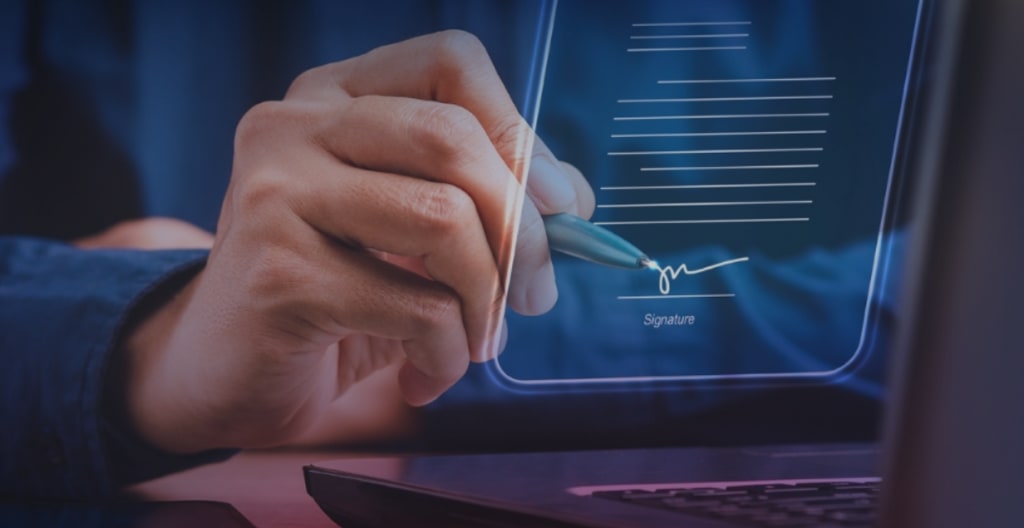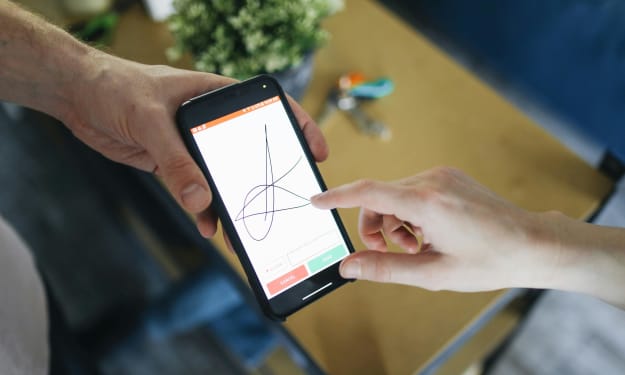Electronic Signature Legality Guide in the Philippines
Navigating the Legal Landscape of E-Signatures for Seamless Digital Transactions

Digital technology has greatly affected the business environment all over the world and the Filipino setting is not exempted. Electronic signatures, also known as e-signatures, being one of the innovations have immensely influenced how transactions occur. With more and more companies turning to digital forms, it is important to determine the legal basis for using e-signatures in the Philippines. This guide aims to explain and give an understanding of the legal processes of using e-signatures Philippines.
The Legal Framework
The legal framework for e-signatures Philippines was anchored on the Electronic Commerce Act of 2000 (Republic Act No. 8792). This law also known as the E-Commerce Act provides for the recognition and use of the documents in electronic form and electronic signatures. The act acknowledges that an electronic signature can be as minimal as a typed name at the end of an e-mail or as sophisticated as a biometric signature.
According to this law, e-signature is the electronic symbol that has one or several attributes of the signer’s identity. This broad definition covers a wide range of digital signature types, and this makes it possible for businesses to have flexibility when implementing e-signatures into their operations. In addition, the rules of digital evidence in the judicial process are determined by the Supreme Court of the Philippines in the Rules on Electronic Evidence (A. M. No. 01-7-01-SC).
E-Signature Validity and Enforcement
Various requirements have to be met for an e-signature to be considered valid and enforceable. First, we have to prove that the signatory intended to sign the given document. This intent can be made by performing several actions like clicking a ‘sign’ button or using a digital pen to write. Second, the signature must be connected with the document with the possibility to notice further changes to the document after signing. This requirement is often addressed by encryption technologies that associate the signature with the document.
In addition, one cannot agree with the idea of recognizing the signatory’s identity. The other important aspect is the digital identity which verifies the genuineness of an individual signing any document. Various solutions are available such as UNAWA which has strong authentication solutions for digital identity verification to make it as easy and secure as possible. The implementation of these solutions will help businesses and individuals to increase the believability of electronic transactions.
Applications and Benefits
Individuals and businesses across the Philippines from banking, real estate, government services, and even healthcare significantly employ e-signatures. For example, banks engage e-signatures in account opening, loans, and all other banking-related operations. Real estate has benefited from e-signatures that reduce the time taken to sign contracts and lease documents that previously required physical meetings. A digital signature is also used by different government agencies to deliver their services faster and much more efficiently for the customers too.
The advantages of using e-signatures Philippines as a form of communication and implementation, are numerous. They are very helpful in avoiding the time and money which is required in normal manual paper-based processes. Financial advantages include reduced prices for paper and ink, shipping, and storage in addition to faster processing and completion of transactions. In addition, the use of e-signatures provides the added benefit of minimizing forgery as well as having the capability to detect whether documents have been tampered with. Another factor is the medical one because the transition from paper to digital signatures leads to a decrease in paper usage and turn, the prevalence of waste.

Implementing E-Signatures: Best Practices
For this reason, businesses should adopt the best practices highlighted below, to maximize on e-signatures while avoiding legal issues.
Signatures: Selecting the Appropriate E-Signature Technology
The selection of a proper e-signature platform becomes the key. Seek products that have capabilities for robust encryption, recording of activities, and meeting legal policies of the region. Business platforms such as the UNAWA and SignSecure have incorporated solutions and services that address the needs of Philippine businesses.
Digital Identity Compliance
Identity verification is crucial for proving the bona fide nature of the signatory in the context of entering an electronic document. Furthermore, engage service providers that employ policies like multi-factor authentication and other higher levels of identification techniques. Not only does this step improve security, but it also reinforces trust with customers and other business associates.
Educate and Train Staff
Training provides the chance to make sure employees realize the legal consequences of electronic signatures and the proper ways of using e-signatures. Invest in the continuous professional development of staff, conduct refresher sessions, and offer updates more frequently to ensure staff is knowledgeable about the current trends in the field.
Maintain Comprehensive Records
Ensure that all Intellectual property transactions are recorded in detail. Such practice involves saving the signed documents in a safe place and also recording and placing an audit trail that captures the whole signing process. It must also be noted that such records prove priceless for any organization in light of the disputes and legal actions.
Conclusion
In this regard, one cannot overstate that the Philippines does allow the use of e-signatures. However, if the parties understand and follow the guidelines then it is important for businesses because e-signatures provide certain ease, security, and cost-effectiveness. In this way, following the legal requirements and recommendations provided in this guide, any organization will be able to safely and confidently move toward the use of digital solutions.
The change to e-signatures Philippines is on the way to becoming a new form of applying innovations in the sphere of digitalization. With those advancements continuing to increase, making sure to be up-to-date, as well as following all possible regulations, will keep businesses functioning at their highest levels, thus being more capable of handling the technology that our generation brings. To conclude that e-signatures should be adopted, the argument presented is not only based on legal grounds; rather, it is an appeal to the Philippine nation to seize the wonderful opportunity brought by digital advancement and prosper.
About the Creator
Enjoyed the story? Support the Creator.
Subscribe for free to receive all their stories in your feed. You could also pledge your support or give them a one-off tip, letting them know you appreciate their work.





Comments
There are no comments for this story
Be the first to respond and start the conversation.